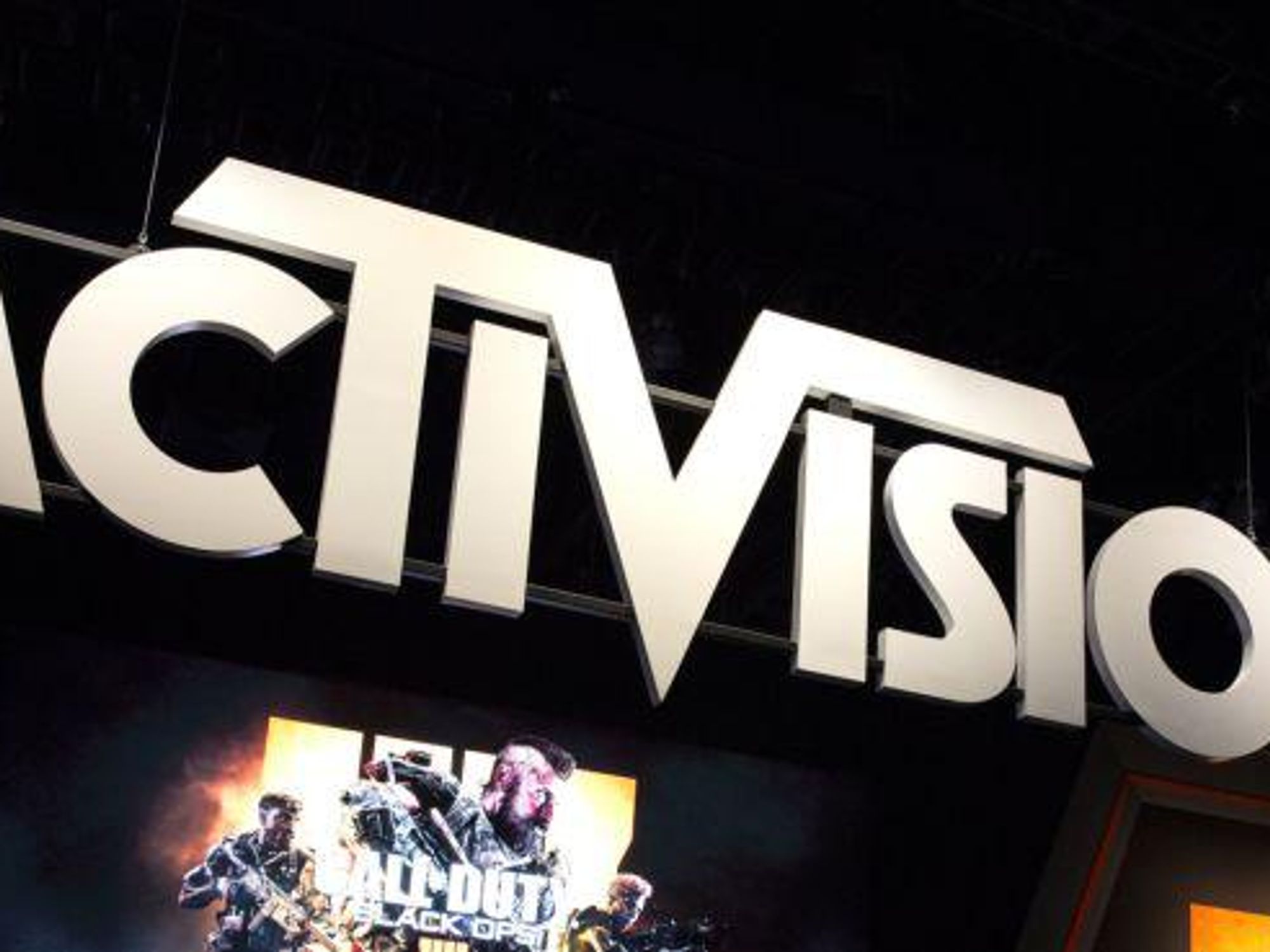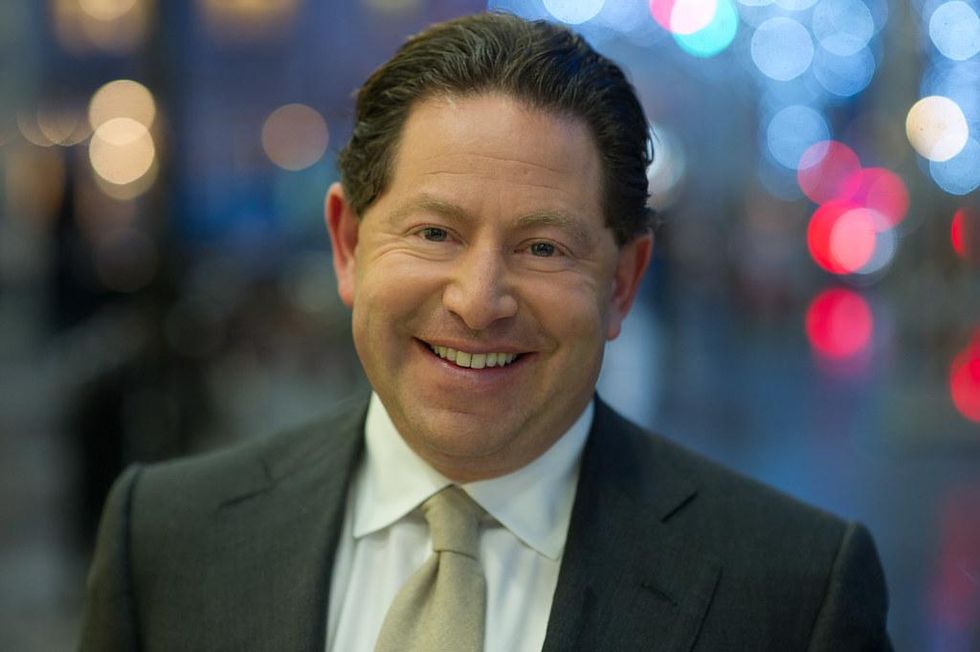With Microsoft Deal, Activision CEO Bobby Kotick’s Tumultuous Reign Nears a Lucrative End
Samson Amore is a reporter for dot.LA. He holds a degree in journalism from Emerson College. Send tips or pitches to samsonamore@dot.la and find him on Twitter @Samsonamore.

As the dust continues to settle from Microsoft’s massive $69 billion deal to acquire video game publisher Activision Blizzard, speculation is rife about what the agreement will mean for Bobby Kotick, the controversial chief executive who has led Activision for 30-plus years.
The man who built the Santa Monica firm into one of the gaming industry’s giants is very well-paid, but these days not nearly as well-thought-of. His botched handling of sexual harassment and assault complaints by Activision workers placed the company at the center of a firestorm last year, spurring lawsuits and investigations and prompting investors, employees and even gamers to call for his resignation.

But all that has now taken a backseat to the Microsoft deal, which would be the largest acquisition in the history of the video game industry and, at a price of $95 per share, prove an enormous windfall for Activision shareholders (including Kotick himself, who holds nearly 4 million shares in the company). And while Kotick helped engineer the transaction—with the furor around Activision reportedly setting a merger into motion last fall—there have been conflicting signals and reports about whether he himself will have a future with the combined companies.
In the span of several months, Microsoft Gaming CEO Phil Spencer went from telling Xbox staff that he was “disturbed and deeply troubled by the horrific events and actions” at Activision, to being described as having “a great relationship” with Kotick by none other than the Activision CEO himself. Microsoft CEO Satya Nadella also spoke highly of Kotick on a conference call Tuesday, praising “his leadership and commitment to real culture change.”
Still, both the Wall Street Journal and Axios reported that Kotick is expected to step down as Activision CEO once the transaction closes—with Kotick said to be drawn to the idea of a “graceful exit.” If Kotick leaves, he will likely do so with an extremely lucrative payout of up to $293 million, per terms described in Activision’s most recent annual report.
But at this point, neither Microsoft nor Activision have revealed what the future will hold for Kotick.
Should He Stay or Should He Go?
Much could depend on what the combined entities will look like. If Microsoft decides to allow Activision to continue operating as a standalone subsidiary following the merger, it’s possible that Kotick could stay put and continue running the business while reporting to Spencer.
A more integrated relationship between the two companies—with Activision folded into Xbox Game Studios—would increase the likelihood that Kotick’s time is up. That is exactly what many workers at the “Call of Duty” publisher have clamored for; nearly 2,000 Activision employees have signed a petition demanding Kotick be removed as CEO in the wake of the controversies under his watch.
While Kotick has thus far survived those controversies, other high-ranking executives have not. Last summer, Activision president J. Allen Brack stepped down days after the California Department of Fair Employment and Housing sued the company for running a “frat boy” workplace culture where women employees were subject to sexual harassment and retaliated against for complaining.
It all culminated in a bombshell Wall Street Journal report in November, which revealed that Kotick himself had known of such allegations for years, yet had ignored and failed to report them to Activision’s board of directors.
Activision workers’ alliance ABetterABK said on Twitter this week that the Microsoft acquisition was “surprising, but does not change the goals” of the group, which include removing Kotick as CEO and improving conditions for women employees at Activision. “We remain committed to fighting for workplace improvements and the rights of our employees regardless of who is financially in control of the company,” it said.
Kotick’s Big Payday
In 2020, Kotick was one of the highest-paid CEOs of any publicly traded company in the U.S., with a total compensation package worth nearly $155 million. And though the scandals at Activision saw Kotick attempt to save face by drastically reducing his salary, the “graceful exit” that he is said to desire would almost certainly include a hefty payday.
Per Activision’s public disclosures, Kotick would be due as much as $293 million in compensation in the event that he is terminated following a change in the company’s ownership. That sum includes up to $4.4 million in severance pay, $17.4 million in severance bonuses and $271 million in equity awards.
He would also likely be paid out for the roughly 3.9 million Activision shares he owns, which would net him more than $370 million given Microsoft’s $95-per-share acquisition offer.
Some investors are already taking exception to such a sizable payout for Kotick—particularly given the revelations about his role in fostering a toxic, misogynistic culture at Activision, and the subsequent damage to the company’s reputation.
“Now that I think it's highly likely that he will retire once the deal is through, what are the accountability mechanisms for his years of leadership of the company?” Dieter Waizenegger, executive director of activist shareholder group SOC, told Axios this week. The shareholder group has called for any “golden parachute” payment to Kotick to be linked to a “civil rights audit” of his leadership at Activision.
SOC, however, owns less than 1% of Activision Blizzard. And in arranging a deal that will reward Activision shareholders handsomely, it appears that Kotick is set to depart the company on his own terms as a very wealthy man—regardless of the damaging, undignified nature of the latter years of his reign.
- Activision Blizzard Employees Plan Another Walkout, Demand CEO ... ›
- Read Activision Blizzard Employees' Letter to CEO Kotick - dot.LA ›
- Activision Shareholders Call on CEO Bobby Kotick to Resign - dot.LA ›
- Antitrust Regulators Review the Activision-Microsoft Merger - dot.LA ›
- Antitrust Regulators Review the Activision-Microsoft Merger - dot.LA ›
- Activision Blizzard Workers’ Fight for COVID Protections - dot.LA ›
Samson Amore is a reporter for dot.LA. He holds a degree in journalism from Emerson College. Send tips or pitches to samsonamore@dot.la and find him on Twitter @Samsonamore.





 Image Source: Skyryse
Image Source: Skyryse